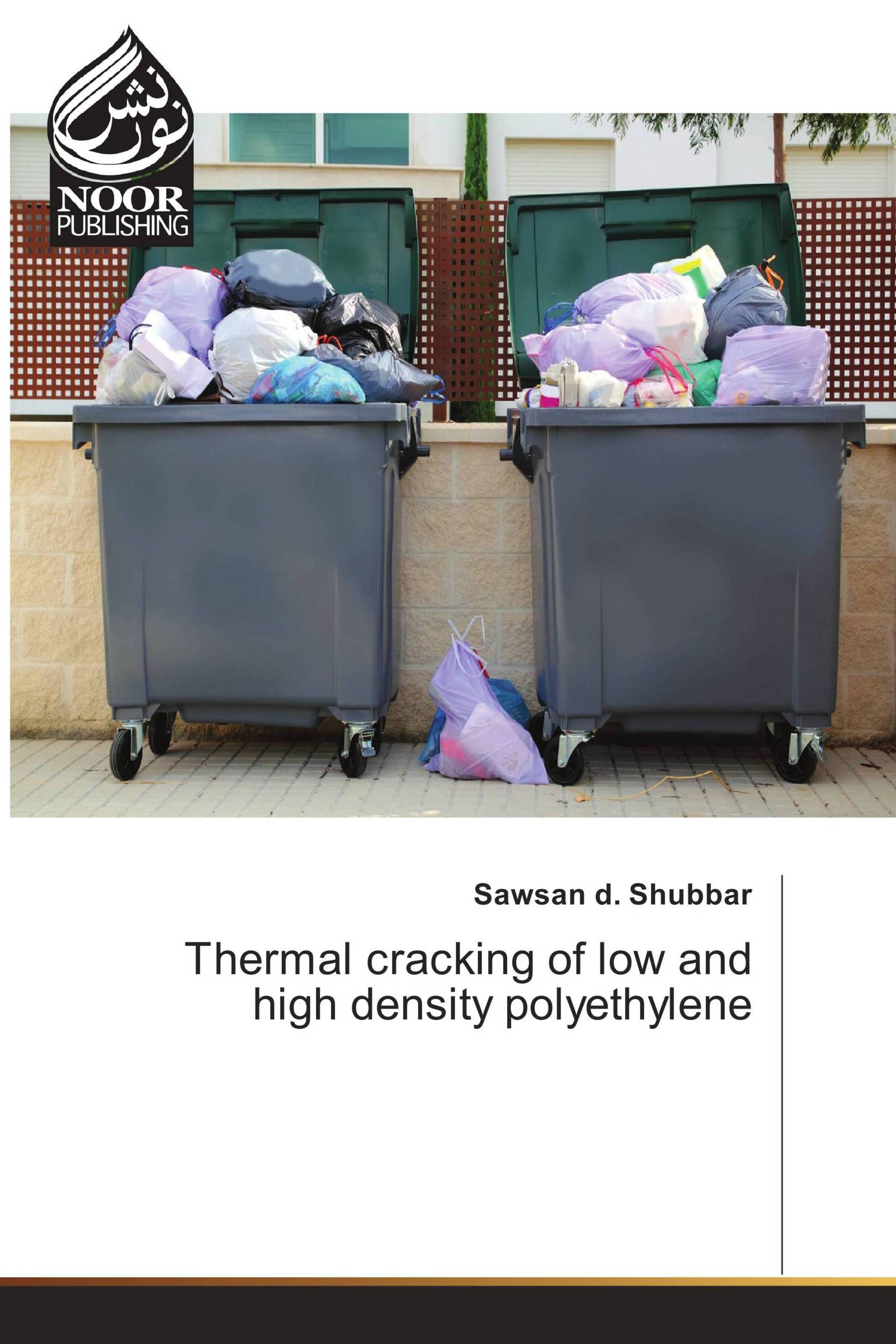The Present study focuses on using thermal cracking (pyrolysis) of waste plastics, to yield fuel-like liquid as a main product, from an important recyclable thermoplastic, Polyethylene (PE). The cracking was carried out in a 750 cm3 stainless steel autoclave reactor, with temperature ranging from 470° C to 495° C and reaction times up to 90 minute. The influence of the operating conditions and feed structure on the component yields, group compositions, distribution of distillate fractions and their effect on the fuel like liquids density and viscosity were studied. The results show that for higher cracking temperature, and longer reaction times there was higher production of gas and coke. The effect on oil was to increase the aromatics, with the production of lighter oil with less viscosity. It was found that the optimum cracking condition for HDPE (linear PE type) that maximized the oil yield to 70 wt. % was 480 °C and 20 minute, and for LDPE( branched PE types), where the oil yield reached 74.4 wt.% it was around 480° C and 10 minute. The effect of structure was obvious on the component yields of HDPE and LDPE liquid products. LDPE produced more gases, oil and coke yields.
تفاصيل الكتاب: |
|
|
ISBN-13: |
978-3-330-85538-0 |
|
ISBN-10: |
333085538X |
|
EAN: |
9783330855380 |
|
لغة الكتاب: |
English |
|
By (author) : |
Sawsan d. Shubbar |
|
عدد الصفحات: |
148 |
|
النشر في: |
04.04.2017 |
|
الصنف: |
Chemical technology |
